Search
Search Results

Article
8 Sonnets and Songs by William Shakespeare
The literary works of William Shakespeare (l. c. 1564-1616) are often regarded as some of the most important in the English language. Alongside his famous plays, he also wrote poems, including 154 sonnets. Included here are six of the best-known...
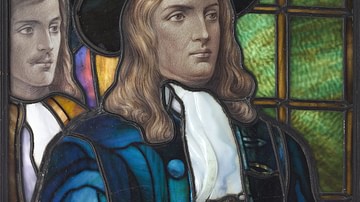
Article
William Penn's Holy Experiment
In the 17th century, many groups of British Christians rose and fought against religious intolerance and corruption. The Puritans sought a return to biblical religion and a purified form of Christianity in England. This resulted in the Puritan...

Image
William the Silent (William I of Orange)
William the Silent (l. 1533-1584) also known as William I of Orange, oil on panel by Adriaen Thomasz Key, c. 1579.
Rijksmuseum, Amsterdam.
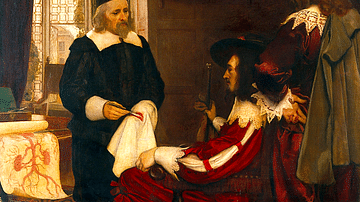
Article
William Harvey's Discovery of Blood Circulation
The human body's system of blood circulation was discovered by the English physician and anatomist William Harvey (1578-1657) in 1628. Harvey determined the relationship between the blood system of arteries and veins and the regular contractions...
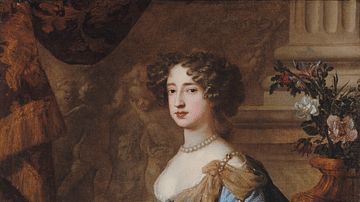
Definition
Mary II of England
Mary II of England (r. 1689-1694) ruled jointly with her husband William III of England (r. 1689-1702) until her death from smallpox. While William suffered a xenophobic reaction to his rule, Mary represented the continuity of the Royal House...

Definition
Chepstow Castle
Chepstow Castle, located in Monmouthshire, South Wales, was first built c. 1067 by William FitzOsbern and then significantly improved c. 1190 CE by Sir William Marshal (c. 1146-1219 CE), one of England's greatest ever knights who served four...

Definition
Odo of Bayeux
Odo of Bayeux (d. 1097 CE) was the bishop of Bayeux in Normandy and half-brother of William the Conqueror (r. 1066-1087 CE). After the Norman conquest of England in 1066 CE, Odo was given vast Anglo-Saxon estates and made, as the Earl of...
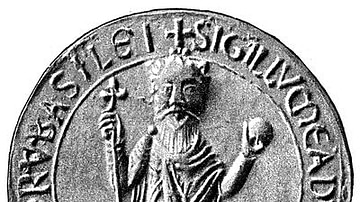
Definition
Edward the Confessor
Edward the Confessor, also known as Saint Edward the Confessor, reigned as king of England from 1042 to 1066 CE. Edward was reliant on the powerful Godwine (aka Godwin) family to keep his kingdom together but his achievements included a relatively...

Article
The Impact of the Norman Conquest of England
The Norman conquest of England, led by William the Conqueror (r. 1066-1087 CE) was achieved over a five-year period from 1066 CE to 1071 CE. Hard-fought battles, castle building, land redistribution, and scorched earth tactics ensured that...
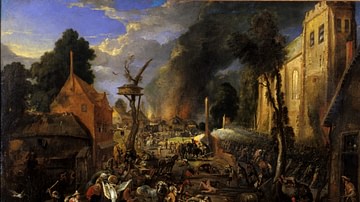
Definition
Eighty Years' War
The Eighty Years' War (1568-1648, also known as The Dutch Revolt and Dutch War of Independence) was a military conflict between the seventeen provinces of the Netherlands and Spain, which then governed them, beginning in the reign of King...